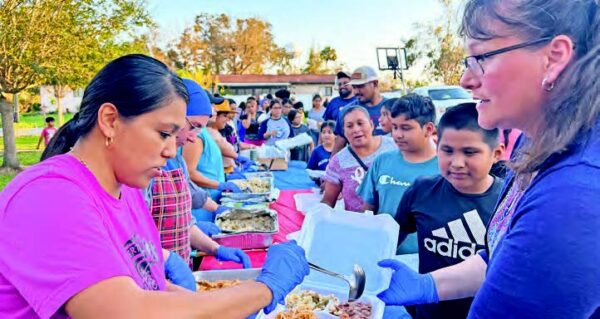
WAUCHULA, Fla. — Since the day after Hurricane Ian made landfall, Vivian Pelham and her husband have been living out of a Red Cross shelter set up in a former healthcare clinic in Wauchula. As of Oct. 6, she hadn’t gone back to their mobile home, fearful of what she might find.
“I don’t know how we’re going to rebuild,” Pelham told The Tablet. “We have an appointment with [the Federal Emergency Management Agency] to go down and look at it and see what they say. Some think that they will condemn it. I don’t know what they’re going to do.”
Pelham also hasn’t thought about her options for long-term housing if the trailer is unlivable. She’s one of many residents in the more inland, lower-income communities of west central Florida who will have a difficult time finding affordable housing if they’re forced to relocate.
Pelham’s mobile home is in Zolfo Springs, about three miles south of Wauchula. Both municipalities, and Bowling Green, make up Hardee County. Hardee County has a median income of about $40,000, with over 20% of residents living below the poverty line.
Those lower-income residents in Hardee County were the most affected by Hurricane Ian. The storm winds rattled mobile homes like Pelham’s while flooding ravaged the insides.
They now join other south-central and southwest Floridians who have to look for housing in a state already grappling with an affordable housing crisis. Both housing prices and rental costs have skyrocketed with an influx of people moving to the Sunshine State during the COVID-19 pandemic.
Prior to Hurricane Ian, more than two million households in Florida with incomes below $50,000 paid more than 30% of their income in rent or mortgage payments — more than a quarter of Florida households.
In Wauchula, Sister Gema Ruiz and others at St. Michael Parish are trying to help affected residents find housing solutions. They’ve taken down names and information from people in need and are trying to find apartments or homes for them to move into. They’ve also committed to paying rent for people that have found an intermediate solution so they can get out of the shelters.
“Some of the homes are still underwater, and those are people who really need help because they lost everything, which wasn’t much, but it’s their little mobile home, a couple of old cars, that’s all they had,” Sister Gema, the director of religious education at St. Michael Parish, told The Tablet. “And nobody pays flood insurance here, so how do you recover? They live day by day.”
Sister Gema said many of the people in Wauchula are undocumented immigrants that work in the fields. She said the housing in the county as a whole is “especially terrible,” adding that there isn’t much to choose from and what does exist has “conditions that really aren’t safe for human beings.”
“I haven’t seen, in 10 years, any improvement,” Sister Gema said. “There is a great need for housing here.”
St. Michael Parish has also been a lifeline for people in need of food and other essential resources in the aftermath of the hurricane.
They stocked their food pantry before the storm — including a walk-in freezer and walk-in cooler — and have opened the doors to anyone in need. They’ve served 300- 400 people hot meals during the afternoon and plan to continue until the need subsides.
When The Tablet visited with Sister Gema on Oct. 6, she toured the nearby Red Cross shelter, where Pelham and other parishioners are staying, to see how they were doing. One of those was Elizabeth Bartolon, an undocumented Wauchula resident who lives in a mobile home with her young family.
Bartolon told The Tablet that they haven’t checked on their home yet because the road is still closed from the flooding. She’s worried about its condition and if any of their belongings survived.
“The most important thing is to not have a house left and have no means to fix it,” Bartolon said through a translator. “I’m worried about the kids having to go to school, and they don’t have anything now. We need help to rebuild the house. We need clothes.”
Asked what they’ll do if their home is condemned by FEMA, Pelham said they have no idea, adding that they plan to stay in the shelter as long as they can.
“This has just totally blown my mind,” Pelham said.
